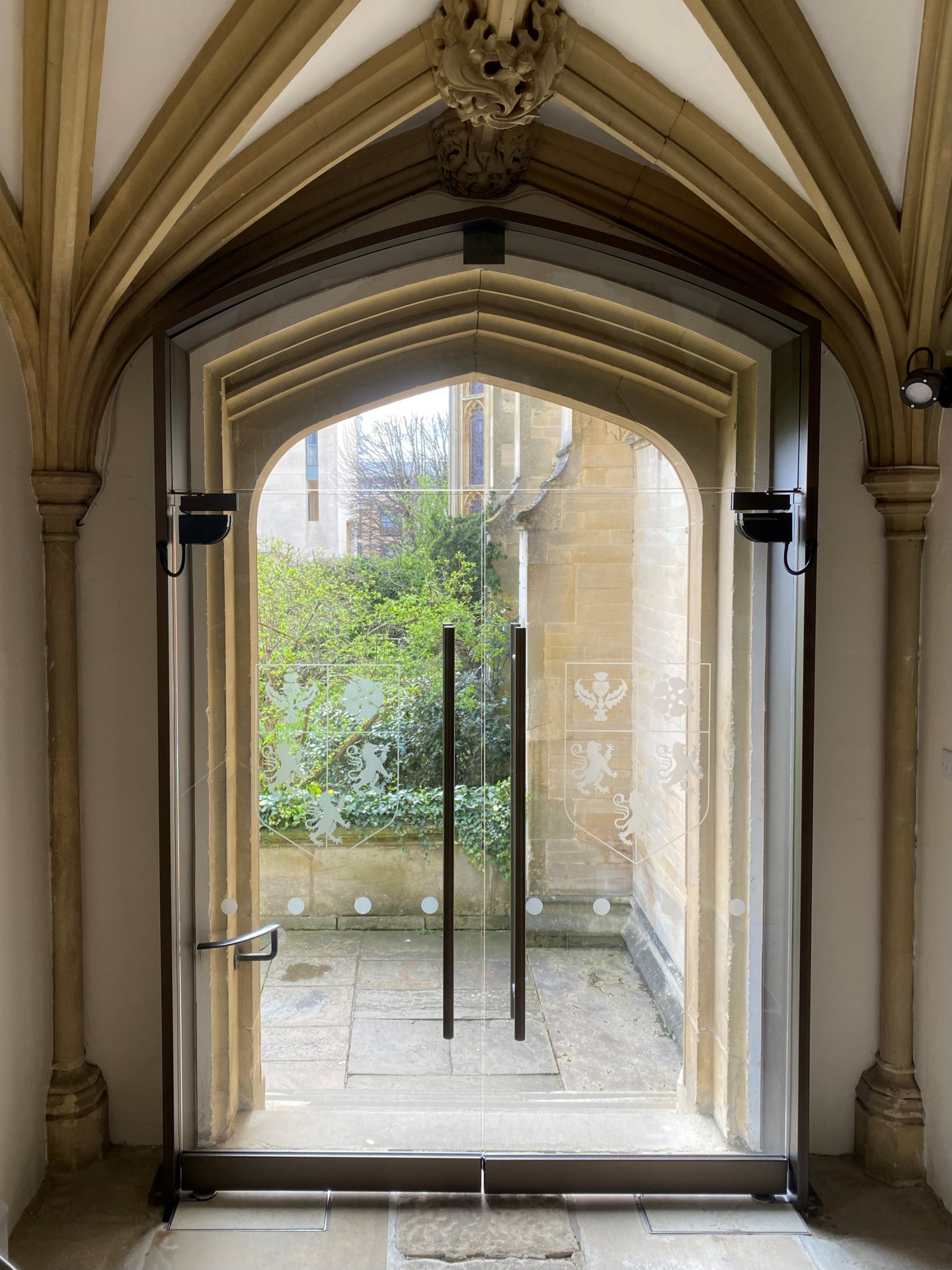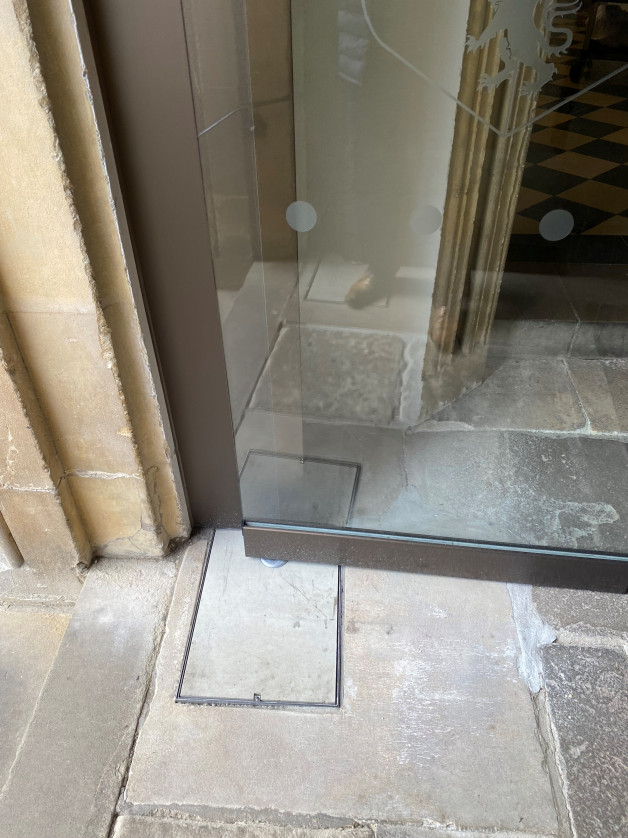The Grade II listed dining hall at Pembroke College, Oxford University has undergone a significant upgrade. Architects Walters & Cohen, in collaboration with Glasstec, has addressed the issue of draughts from the hall’s heavy timber doors by installing an elegant yet highly functional, self-opening glazed entrance door.
This creative solution incorporates a TORMAX iMotion 1401 concealed door drive, providing invisible automation for the swing door. The result is a warm, draught-free environment that enhances thermal comfort and energy efficiency without compromising the hall’s historic charm.
The new entrance door is a testament to the seamless integration of modern technology within a historic setting. The TORMAX iMotion 1401, located discreetly in a steel casing beneath the door, ensures that the aesthetic integrity of the Victorian stonework remains intact.
"We are delighted with the successful installation of the new entrance door, which cleverly balances functionality and heritage conservation," said Vanessa Gouws, Operations Bursar of Pembroke College. "This intervention has helped improve the energy efficiency of the dining hall, the second biggest fuel consumer in Pembroke’s estate, not to mention helping keep diners and dinners warm."
TORMAX is a global leader in door automation systems, renowned for their innovative designs and commitment to quality.
Designed in-house at the TORMAX headquarters in Switzerland, the iMotion range of automatic door operators incorporate a motor with none of the elements that generally wear out, such as gears and brushes. This ensures exceptional longevity and demands only minimal ongoing maintenance, making it entirely feasible to situate the drive in a concealed location.
“In addition to the iMotion 1401 underfloor door drive, we offer the iMotion 1302.KI which is concealed within the door lintel,” comments Simon Roberts, MD for TORMAX UK. “Together, these options can deliver practical access solutions for almost any location where the traditional appearance of an entrance must be preserved.”


